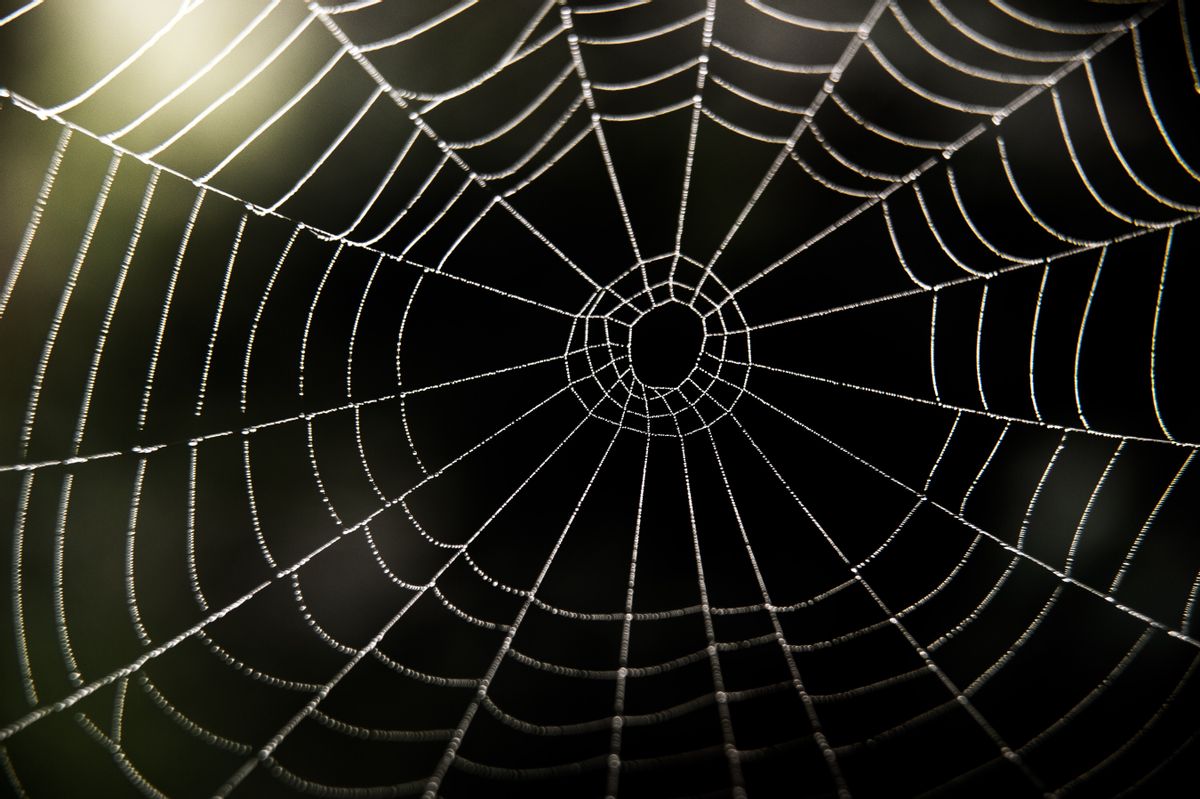Some spider species have been observed wrapping inedible prey or plant material in silk before presenting it to a would-be mate. Calling such material "trash" may be misleading in the sense it's not garbage but more so unusable waste.
Certain male spiders have been observed wrapping gifts of prey in silk before offering the presents to potential female mates, hoping for a successful return. However, a claim frequently circulated on social media platforms says some males cheat the system, instead wrapping up “random trash.”
A 2022 post on X (formerly Twitter) claims the males are “hoping the female spiders don’t notice until after they get busy.” Similar posts have been made on Facebook and Reddit.
SCIENCE FACT: Male spiders will often wrap up bugs and gift them to female spiders to increase their chances of mating. Sometimes, though, male spiders will wrap up random trash, hoping the female spiders don’t notice until after they get busy. pic.twitter.com/fHAXQvLQYQ
— Upworthy Science (@upworthyscience) August 19, 2022
The claim is true. Jason Bond, an entomologist and professor in the department of entomology and nematology at the University of California, Davis, said scientists have indeed observed this behavior in spiders, and several scientific studies confirmed the phenomena to be true.
“It’s not entirely clear that females always ‘don’t notice’ but in some taxa that may be the case,” Bond wrote.
One Spider's Trash…
The term “trash” depends on who — or what — you’re asking. Scientific literature indicates that male spiders have been observed wrapping inedible prey and plant parts in silk. Calling such material "trash" may be misleading in the sense it's not garbage but more so unusable waste.
Spider scientist Sebastian Echeverri told Snopes in an email that only a few types of spiders “wrap food as a courtship gift to the female.”
Nuptial gift-giving spiders include Pisauridae and Trechaleid and typically, mating occurs when the female consumes the food gift.
“Gift giving seems to have evolved to serve non-mutually exclusive goals. Giving gifts tends to increase males’ likelihood of mating, so they are part of the courtship itself, Echeverri told Snopes. "In addition, food gifts can give the female more nutrients to make eggs."
It’s the Thought That Counts?
A 2023 study found “males may also produce worthless gifts.” Such “worthless” gifts could be prey leftovers or plant parts, according to a study that came to a similar conclusion years earlier, in 2020.
“In a few species, males have been seen giving a ‘worthless’ gift (leftover food, plant material, or in one case, an empty silk ball)," Echeverri wrote.
The 2023 study also found females accept both worthless and worthwhile gifts (the latter being edible prey) during courtship because they supposedly can’t tell the difference under silk wrapping.
But why do males choose to deceive their would-be mates? Science isn’t entirely sure. It could be that a male providing scraps, even if they're inedible, shows he is a good hunter with good genes. Or, perhaps, his lack of effort saves him valuable time and energy for other things, according to the 2020 research.
Scientists also theorize a “cheater strategy”; The male gets to have his cake and eat it, too, so to speak. By providing scraps, the male gets nutrition from his meal and then uses his leftovers to lure a female. In other words, as Echeverri put it, male spiders may choose to wrap up inedible material so "to get the benefit [of mating] without needing to give up a food item."
And, because worthless scraps are often wrapped in more silk than edible gifts, they require more time for the female to unravel — thus, giving the male more time to seal the deal, if you will, a 2017 study found.
Males may use this gift-giving “cheat” during stressful times — when the going is rough, so to speak — such as when less food is available due to environmental conditions, according to 2023 research.
But, as it turns out, female spiders don’t appear to have strong preferences for nutritional gifts over worthless ones. Research shows, in most cases, male spiders that give genuine gifts to potential mates aren't more or less likely to hook up with, or be cannibalized by, their female counterparts. In other words, males with worthless gifts appear to have as much success with mating and survival as those offering nutritional gifts, according to 2011 research.

